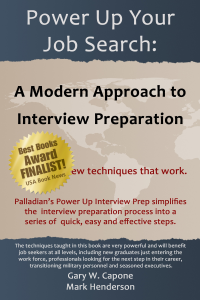Supply chain professionals face numerous challenges. Sourcing provides some of the most complex obstacles a company will face. Sourcing professionals need to find ways to source high quality products, materials and services at low prices with short lead times and no supply interruptions. All of this must be done in a global economy constantly changing. As a supply chain professional, how you maximize the performance of the supply chain is important, but equally important is minimizing risk.
As you write your resume and prepare to interview, you will want show how you contributed to your past employers. Focusing on ways you have cut costs is a good start. Reducing lead times and improving quality are also good to emphasize. These are only starting points for supply chain professionals. Managing risk can be the most important aspect of a supply chain role.
There are risks in every strategy and tactic a company adopts. Some risks are small. Supply chain risks are often huge. For example, construction firms who utilized Chinese drywall over the last decade face tremendous liabilities as the material has been found contain chemicals that make houses unlivable. Entire subdivisions are being abandoned. There are numerous examples of companies harmed by poor quality materials from suppliers. These risks are significant, but are only the tip of the iceberg.
When sourcing globally, companies face risks from every direction. Currency fluctuations can turn the lowest cost supplier into the highest cost option. Political disputes and striking workers can shut down companies and key transportation routes. Energy price changes can drive up or down transportation costs. Every year, natural disasters, from hurricanes to earthquakes, hit different parts of the world. The more widely spread your supply chain, the more likely you will be affected.
Managing all of these risks is challenging. Risk management was a key theme in one of the supply chain management sessions at the APICS Conference in Toronto I attended. The speaker talked about ways to build in alternatives and options into a supply chain. Developing secondary suppliers and alternate delivery strategies can be essential if your company wants to survive a major supply disruption.
As you write your resume, include examples of your contributions to managing supply chain risk. Often this will take the form of developing additional suppliers. Doubling your supplier base could be an expensive proposition, but it could also be much less costly than a major supply disruption. Your experience with balancing these priorities and the solutions you delivered can help set you apart from other supply chain professionals. Some people just show up. They do the minimal to get by. This usually involves shortcutting to the solution. Showing how you took a more difficult path but set the company up for success no matter what happens is much more valuable.
Risk management is a good topic for a resume, but it may be more suitable for interviewing. On a resume, you need to brief. You may only have a couple lines to devote to each accomplishment. Managing risk can be a complex process not easily condensed. For this reason, your best risk management accomplishment might not help on your resume. Once you get into an interview, though, you will have the opportunity explain what you did more fully and dive into complex accomplishments.






